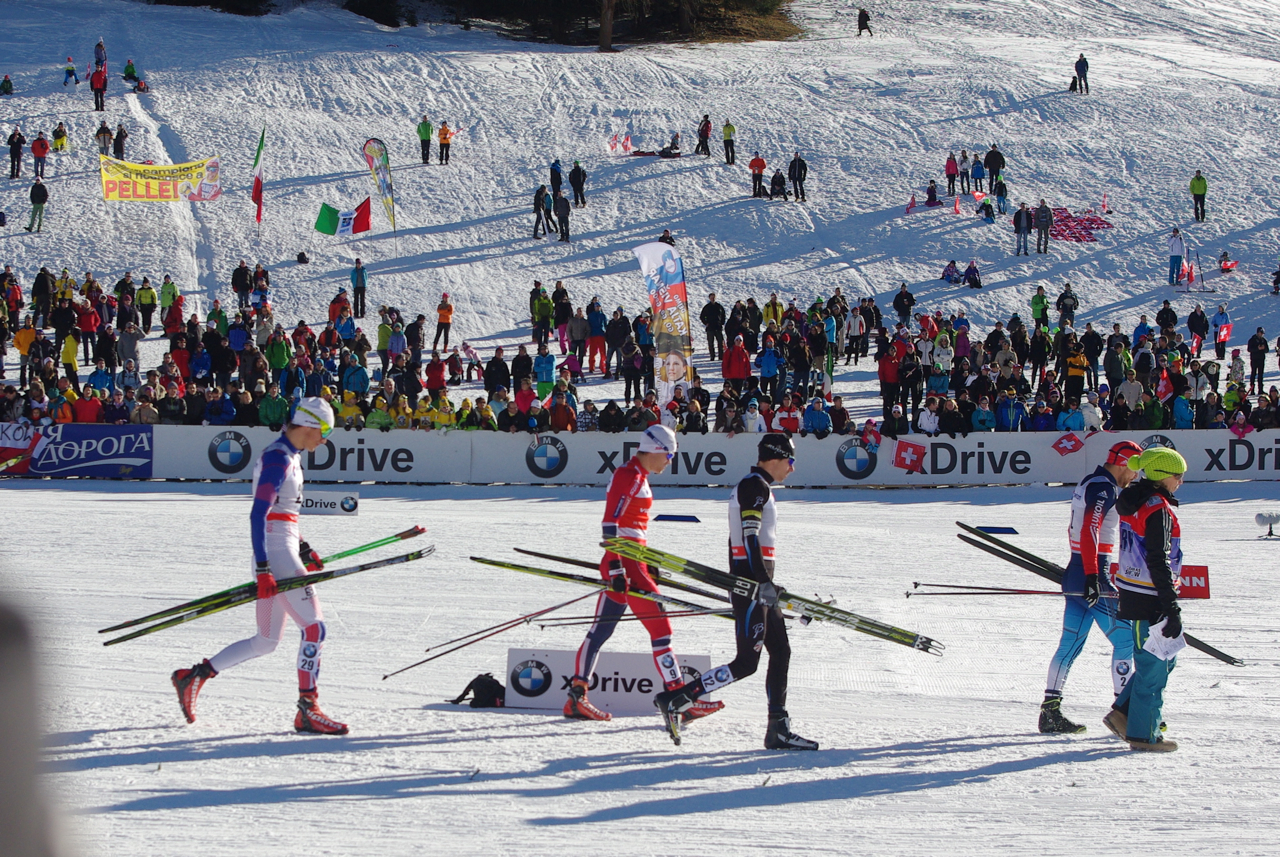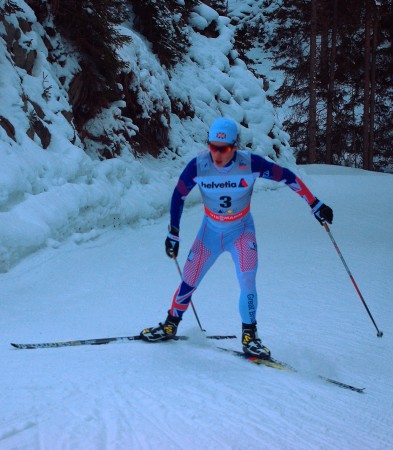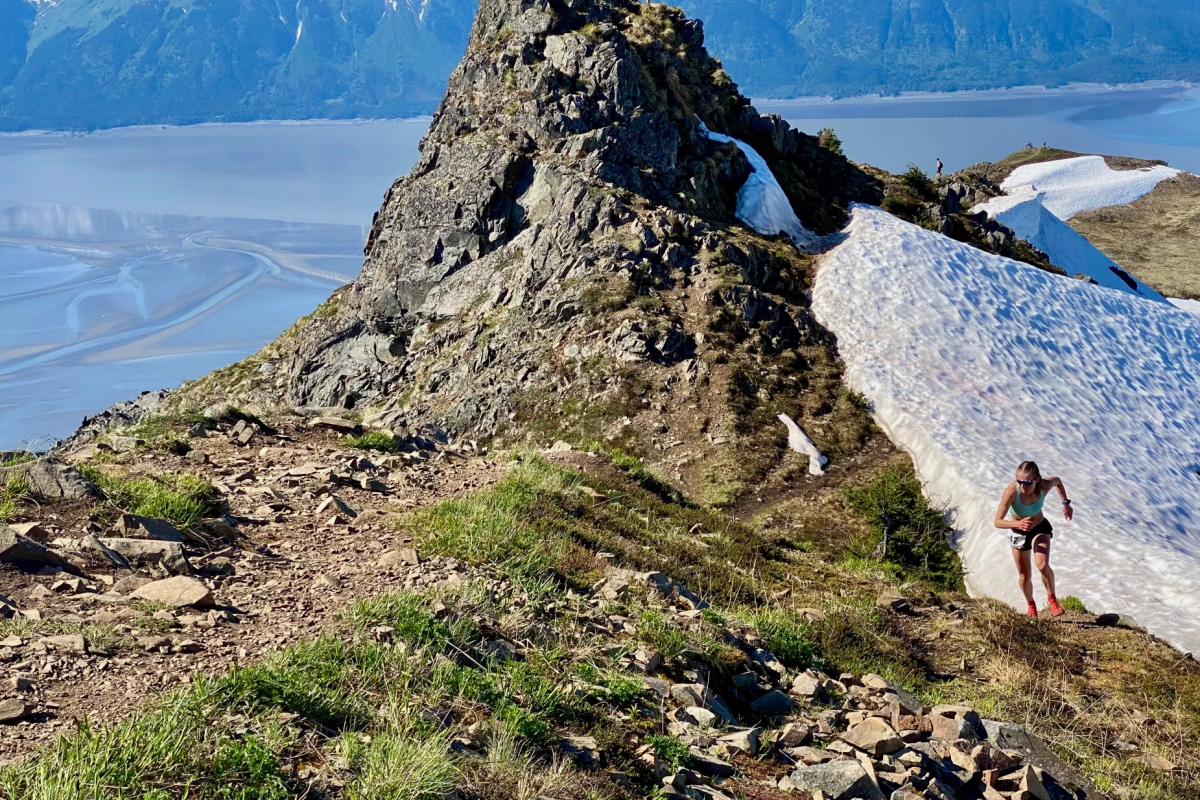
DAVOS, Switzerland – Despite the strong results from Andrew Musgrave over the past several seasons, it’s still something of a shock to your average European ski fan to see a British suit go by.
“Wait, he’s from England?” me Swedish friend Sofia – a total ski nerd in most other respects – asked as Musgrave raced by on his first lap of the 30 k freestyle here on Saturday. “Really? He looks good.”
But if the British team has its way, those perceptions will be quashed in the next few seasons. Musgrave finished 36th in that 30 k, despite not feeling fantastic. He classified it as a solid race, nothing spectacular.
“The race was all right,” he said at the finish. “I felt like the first two laps were pretty good, like I was going easy, and keeping up the speed. But the last lap and a half I started to get a little bit tired. The last 7 k were tough. I felt like it was as good a race as I could have had today.”
The next day, Andrew Young – a 21-year-old who we interviewed this summer – made a splash when he qualified for the heats of the freestyle sprint. Starting in bib 69, he was one of a few late starters to surprise. The guy he bumped out of the top 30? Musgrave.
It was the first World Cup points Young, who ended up finishing 29th, had ever scored.

“It was awesome,” Young said after his quarterfinal. “I’m skiing fast. Just to be top 30 is huge, so I’m happy. After that, it doesn’t matter if I didn’t ski so well in the heat.”
Britain now has three men (Musgrave, Young, and Callum Smith) who have achieved the Olympic “A” qualifying standard, and one woman (Posy Musgrave, Andrew’s sister).
This is not the British team you’ve seen before. Will it be their best Olympics ever?
“Oh yeah, definitely,” Andrew Musgrave said. “The team has developed massively since 2010.”
The improved results have come as a result of incremental buildups in support and training expertise, and, recently, a Crowdfunder campaign to raise money to send more athletes to more races this November and December. As Young told us this summer, the British team usually must decide how to use its limited budget, and choose just a few World Cups to attend.
In order to get more athletes qualified for the Olympics, they have turned that on its head. After raising a few thousand pounds, British skiers have attended more World Cup and FIS races than usual, and the results paid off. Smith, for example, competed in one World Cup race in Lillehammer, then traveled to FIS races in Austria and is now at World University Games in Trentino, Italy; Posy Musgrave also headed to Austria, but then returned for the Davos World Cups, where she placed 51st in the sprint.
“We have a lot of support through that Crowdfunder – a lot of people have been really generous and giving us some good donations,” Andrew Musgrave said. “So that has helped a lot. Right now we have four people qualified, and another girl is close. So that would be awesome.”
But the strategy highlights a dichotomy for the team: skiers like the Andrews (Musgrave and Young) were already qualified, and are going about their seasons in the usual way. Hence Andrew Musgrave’s lack of concern at his 36th-place finish, a pretty standard result. He ended up 34th in the sprint.
“It’s been kind of okay,” he said of the beginning of his season. “It’s not as great as I had hoped, but at the same time it’s still just early December. It’s a couple of months until the Olympics. The plan is to have the best races in the middle of February.”
For some of the rest of the team, a slow buildup into the season is an unaffordable luxury. Yet the focus, and perhaps the pressure, of using these early season races to meet qualification criteria has led to success. Skiers have flourished under the circumstances.
“It wasn’t so important for me to go fast in the start of the season,” Andrew Musgrave said. “Some of the other guys had to go pretty fast to get the qualification standard, and they are just skiing a whole lot better than they have been the last couple of years. So it has worked out pretty well.”
All that improvement isn’t going to lead immediately to a huge Olympic squad. At the moment, the British team will only receive two spots for men and one for women. If Smith wants to compete in Sochi, for instance, they’ll have to find him another spot. And that’s not easy.
The entire Olympic quota is 310 athletes, and currently those spots are divided up between nations based on how well their athletes perform. But not all the countries will likely use all their quota spots, for example if the same athletes will race multiple races (each country still only receives four starting spots per race, no matter how big their team is) or if their national federation rules set harsher qualification criteria than FIS itself (among the countries with this issue are Switzerland and Japan).
The unused spots will then be divvied up based on the “global list”. The committee will run down the FIS points list, offering a spot to the country of the next skier on the list, until all the spots are gone.
And then, it might happen again – for example, Canada might be offered another spot, but refuse it. Unfortunately, Britain can’t take these handed-back spots based on its own Olympic Committee’s rules. So their only chance is in that first rundown of the global list, which will take place on January 20th.
Finally, there’s the fact that Britain is, in fact, one of these countries that sets harsh rules for its own athletes. For instance, the Olympic “A” standard is 100 FIS points, but British women will have to do better than that.
“In the women we had a nightmare in setting the qualification standards because our Olympic association wanted top 2/3 of Olympic field – this lead to Sprint qualification being at average of 91 points while distance is 97,” British nordic coach Roy Young wrote in an e-mail. “However, I was really confident after Sochi last year that Posy [Musgrave] could meet the sprint, and she has now had two races in the 50’s for points. Fiona [Hughes] is just shy of the 97 average at the moment.”
Despite the difficulties, the team is looking forward to having not only its biggest Olympic squad in Sochi, but also its best. After this weekend, it’s possible to imaging both young and Musgrave, who is the 82nd-ranked sprinter in the World on the latest FIS Cross Country list, making he sprint heats in Russia.
“Sunday’s results were just amazing,” Roy Young wrote.
And for the athletes who had to peak a little early just to book their ticket? There’s a plan for them too.
“It is really tough having to go hard right now and then expected to do pretty well at Sochi,” Young wrote. “However, we are about to change the plans for Posy and Callum so they can rest up a bit now before going hard again. It is always tough as a small nation, but then the Norwegians won’t be guaranteed a place even if they did really well at Davos – so there are some gains in the smallness, too.”
Chelsea Little
Chelsea Little is FasterSkier's Editor-At-Large. A former racer at Ford Sayre, Dartmouth College and the Craftsbury Green Racing Project, she is a PhD candidate in aquatic ecology in the @Altermatt_lab at Eawag, the Swiss Federal Institute of Aquatic Science and Technology in Zurich, Switzerland. You can follow her on twitter @ChelskiLittle.



